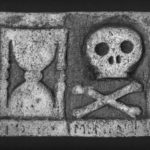p. 408
General System, and division of the Code.
By the code of the sect of Illuminees I mean the principles and systems which it had formed to itself on Religion and Civil Society, or rather against all Religion and Civil Society whatever; I mean the government and the laws which it has adopted to realize its plans, and to guide the adepts in bringing the whole universe into its systems. This was not so much a code springing from an ardent mind, and an enthusiastic zeal for a great revolution, as the offspring of reflection on the means of rendering it infallible; for no sooner had Weishaupt conceived a plan, than he foresaw the obstacles which might thwart its success. Though he decorated the first pupils whom he had seduced with the title of his profound adepts, yet he did not dare unfold to them the vast extent of his plans. Pleased with having laid the foundation, he did not hurry the elevation of that edifice, which might have been exposed to fall for want of the proper precautions; no, he wished it to be as durable as time itself. For five whole years he meditated; and he foresaw that he should still have to pause for many a tedious day on the means of securing the success of his plans. His plodding head silently ruminated and slowly combined that code of laws or rather of cunning, of artifice, of snares and ambushees by which he was to regulate the preparation of candidates, the duties of the initiated, the functions, the rights, the conduct of the chiefs, and even his own. He watched every means of seduction, weighed and compared those means, tried them one after the other; and when he had adopted any of them would still reserve the power of changing them, in case he should happen to fall upon any that would be more disastrous.
Meanwhile his first disciples, now his apostles, gained him many partizans; he seduced many himself, and directed their conduct by letter. His advice was adapted to circumstances, and, artfully husbanding his promises, he kept the minds of his disciples perpetually in suspense as to the last mysteries. To his trusty adepts he promises systems of morality, of education, and of polity, all entirely new; and they might easily surmise that this future code would be no other than that of a morality without restraint, of a religion without a God, and of a polity without laws or any dependence whatsoever; 1 though he did not dare
p. 409
entirely to throw away the mask. But his laws appeared imperfect, his snares were not sufficiently concealed; and he was convinced that time and experience alone could perfect the work on which he had so long meditated. Such are the colours, at least, in which we see him representing himself when his adepts, impatient to be initiated in the last mysteries, reproach him with the slowness of the proceedings: “It is from time and experience,” says he, “that we are to learn. I daily put to the test what I made last year, and I find that my performances of this year are far superior. Give me then time to reflect on what may forward and on what may delay the execution of our plans; to weigh what may be expected of our people left to themselves or led and conducted by us.—Remember that what is done in haste, speedily falls to ruin. Leave me then to myself, let me act alone; and believe me, time and I are worth any other two.” 2
Let not the reader imagine that these meditations of Weishaupt alluded to the object of his views; that never varied; the destruction of Religion, the destruction of Society and the civil Laws, the destruction of property,—that was the point at which he always aimed; and this impious man too well knew his crime, not to be alarmed; we see him writing to his confident, “You know the situation in which I stand. I must direct the whole by means of five or six persons. It is absolutely necessary that I should during my life remain unknown to the greater part of the adepts themselves.—I am often overwhelmed with the idea that all my meditations, all my services and toils are perhaps only twisting a rope or planting a gallows for myself; that the indiscretion or imprudence of a single individual may overturn the most beautiful edifice that ever was reared.” 3

Moe is the founder of GnosticWarrior.com. He is a father, husband, author, martial arts black belt, and an expert in Gnosticism, the occult, and esotericism.





